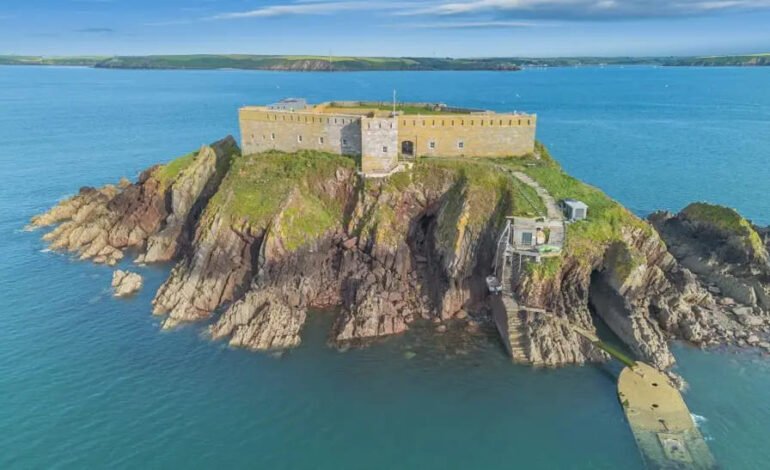Thorne Island restoration: derelict Napoleonic fort becomes £3m retreat

What began as a whim has turned into one of Wales’s most unusual renovation projects. The restoration of Thorne Island, a windswept fort just off the Pembrokeshire coast, has seen the once-derelict stronghold reborn as a £3 million retreat with 40 beds, en-suite rooms and even a nightclub.
Mike Conner, who previously ran a software business, bought the crumbling Victorian fort for £555,000 in 2017. What he found was a structure that had been left empty for 17 years, without power or running water, and where even food and waste had to be ferried across by boat.
The first year was spent simply making the place habitable. From there, the scale of the renovation grew, six workers lived on the island for nearly five years, installing new systems, hauling equipment by helicopter, and enduring the kind of isolation that tested their resolve. One demand from Conner’s wife kept morale up: a flushing toilet, which meant tunnelling through five metres of rock to connect to a £200,000 biodigester.
Originally built in the 1850s to guard Milford Haven, Thorne Island’s military precision is still visible in its stonework. Conner describes it as “like Stonehenge, built by a thousand men in just two years.” Bringing it back to life, he says, felt like adding a modern layer to an extraordinary piece of history.
The island has always had a social side too. It was once a hotel, hosting parties and stag weekends, and Conner has carried on that tradition, celebrating his 50th with a tightrope act in the courtyard. He jokes that the island has hosted everything from serene evenings to 80-person blowouts.
Looking ahead, he imagines Thorne Island as more than just a personal project. With the right investment, it could become a tourist draw, an event space, or even a jobs generator for the local community. “It’s a blank canvas,” he says, one that could host anything from a wedding to a rave for 800 people.
Heritage buildings like Thorne often need visionaries to keep them alive. For more on how such places are cared for, the National Trust’s conservation in Wales offers wider context on protecting fragile history.
EyeOnLondon keeps you connected with the stories shaping life across the country.
Follow us for independent reporting and thoughtful coverage you won’t find elsewhere.
Follow us on:
Subscribe to our YouTube channel for the latest videos and updates!
We value your thoughts! Share your feedback and help us make EyeOnLondon even better!









